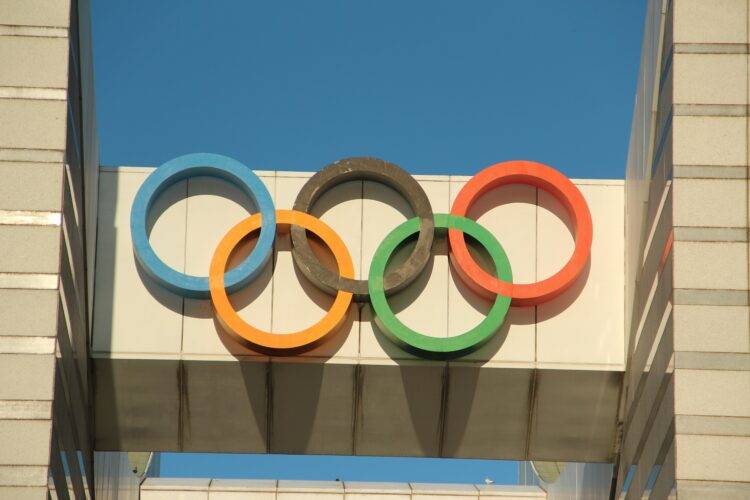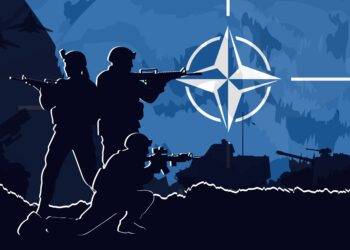In a bold and ambitious announcement, Polish Prime Minister Donald Tusk revealed that Poland will formally pursue a bid to host the Olympic Games, eyeing the 2040 or 2044 editions of the prestigious sporting event. The statement was made during a press conference in Karczew, where Tusk highlighted the nation’s growing aspirations to bring the global event to Polish soil.
Speaking from an Orlik sports facility, the prime minister expressed confidence in Poland’s potential to organize the Olympic Games, emphasizing that initial steps have already been taken towards realizing this long-standing national dream. “For months, we have been working to make this dream a reality,” Tusk declared. “There is no better place to announce that Poland will formally bid for the Olympic Games.”
Long-term Vision for Poland
Tusk’s comments came with a clear note of pragmatism. He acknowledged that while the goal is ambitious, there is still a long road ahead, dependent on decisions and commitments from the International Olympic Committee (IOC). “Whether this is a realistic objective will be determined by future developments. However, we are approaching this goal with seriousness,” the prime minister said. He pointed out that Poland’s most realistic target would be to host the Games in either 2040 or 2044, based on initial discussions and signals from the IOC.
This formal bid marks a significant step in Poland’s effort to elevate its global sporting profile, especially after having successfully hosted a range of international sports events in recent decades, including the UEFA European Championship in 2012. The proposed Olympic Games would not only spotlight Poland on the world stage but also bring considerable economic, infrastructure, and tourism benefits to the nation.
Challenges and Preparations Ahead
Despite the optimistic outlook, Tusk acknowledged that the road to securing an Olympic bid will not be without its challenges. “Life will show if this is a realistic goal,” he said, underscoring that Poland is treating this endeavor with utmost seriousness. To succeed, Poland will need to make significant investments in infrastructure, sports facilities, and transportation networks. While the country already has some world-class venues, further development will be required to meet the Olympic standards set by the IOC.
The upcoming months and years are expected to bring intense preparations, as government and sporting bodies work together to present a compelling case to the IOC. A successful bid would not only place Poland among a select group of nations capable of hosting the Olympics but would also align with its broader vision of promoting sports and physical education, especially through its “Orlik” program, which aims to provide accessible sports facilities across the country.
Poland’s Sporting Ambitions
Hosting the Olympic Games would be a culmination of Poland’s ongoing efforts to promote its standing in international sports. The nation has been an active participant in the Olympics since its first appearance in 1924 and has since collected numerous medals across a variety of sports, including track and field, weightlifting, and fencing. Bringing the Games to Poland would represent a historic achievement and a point of national pride.
Should the bid be successful, it would mark the first time that Poland has hosted an event of such magnitude, potentially making it a defining moment in the country’s modern history. Poland’s Olympic ambitions are not just about national pride but also about long-term socio-economic development, leaving behind a legacy of improved infrastructure and enhanced global reputation.
As the world watches closely, Poland’s journey towards potentially hosting the Olympic Games will likely be filled with anticipation, challenges, and opportunities. The nation now has several years to prepare a compelling case and secure the backing of both its citizens and the international sports community.
Background on Olympic Bidding
The process of bidding for the Olympic Games is a rigorous, multi-year endeavor involving significant resources and coordination. Countries interested in hosting must submit detailed proposals outlining their plans for venues, infrastructure, transportation, and accommodation. The host city is usually selected seven years before the Games.
In recent years, the IOC has increasingly emphasized sustainability and legacy, seeking host cities that can demonstrate not only their ability to deliver a successful event but also to ensure that the infrastructure created will benefit the local population for years to come. With global competition for the Olympics intensifying, Poland’s bid for the 2040 or 2044 Games is expected to face stiff competition from other interested nations. However, Poland’s demonstrated capability in hosting international sports events gives it a solid foundation to build upon.
Should Poland succeed, it would join an elite group of nations that have had the honor of hosting the world’s biggest sporting event, reshaping the country’s sporting landscape and marking a new chapter in its Olympic history.


















